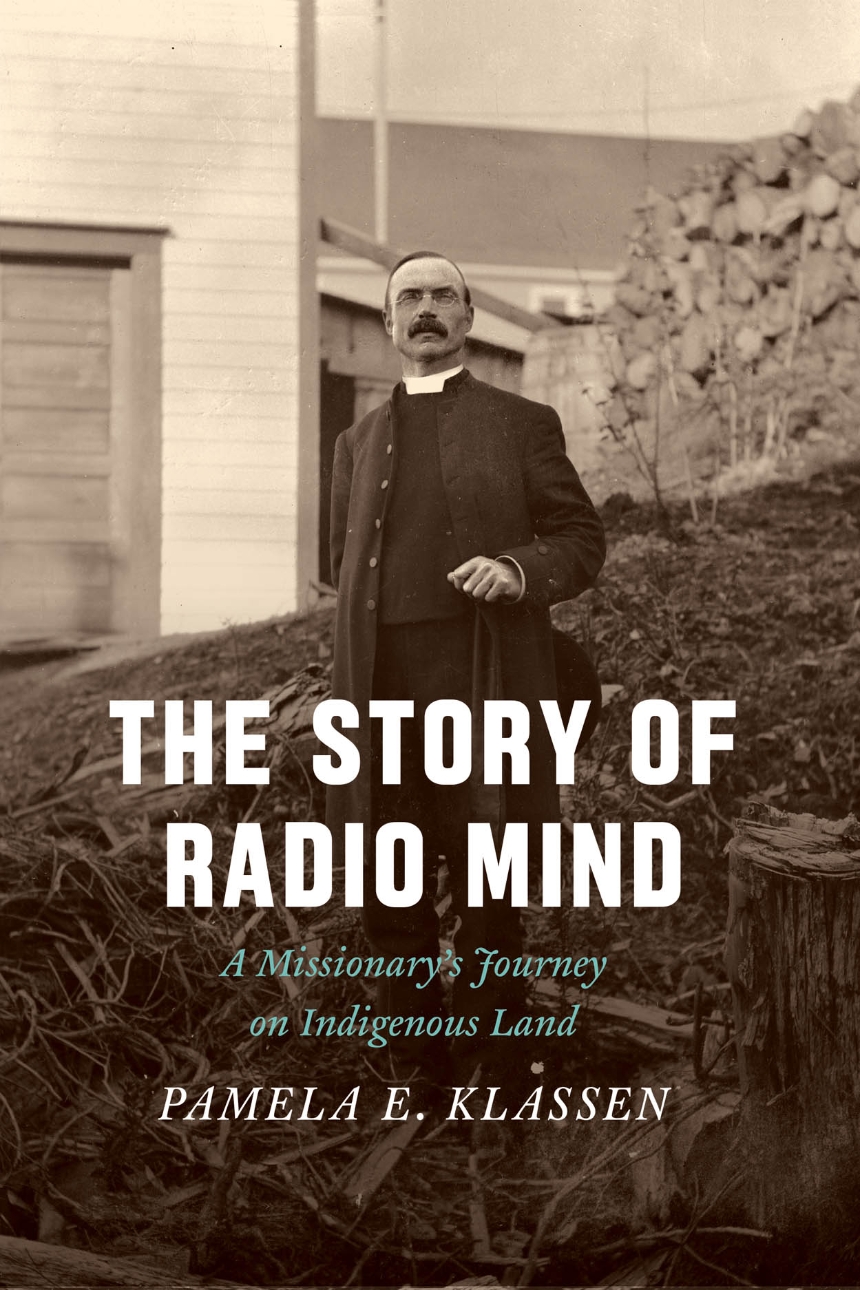The Story of Radio Mind
A Missionary’s Journey on Indigenous Land
9780226552736
9780226552569
9780226552873
The Story of Radio Mind
A Missionary’s Journey on Indigenous Land
At the dawn of the radio age in the 1920s, a settler-mystic living on northwest coast of British Columbia invented radio mind: Frederick Du Vernet—Anglican archbishop and self-declared scientist—announced a psychic channel by which minds could telepathically communicate across distance. Retelling Du Vernet’s imaginative experiment, Pamela Klassen shows us how agents of colonialism built metaphysical traditions on land they claimed to have conquered.
Following Du Vernet’s journey westward from Toronto to Ojibwe territory and across the young nation of Canada, Pamela Klassen examines how contests over the mediation of stories—via photography, maps, printing presses, and radio—lucidly reveal the spiritual work of colonial settlement. A city builder who bargained away Indigenous land to make way for the railroad, Du Vernet knew that he lived on the territory of Ts’msyen, Nisga’a, and Haida nations who had never ceded their land to the onrush of Canadian settlers. He condemned the devastating effects on Indigenous families of the residential schools run by his church while still serving that church. Testifying to the power of radio mind with evidence from the apostle Paul and the philosopher Henri Bergson, Du Vernet found a way to explain the world that he, his church and his country made.
Expanding approaches to religion and media studies to ask how sovereignty is made through stories, Klassen shows how the spiritual invention of colonial nations takes place at the same time that Indigenous peoples—including Indigenous Christians—resist colonial dispossession through stories and spirits of their own.
Following Du Vernet’s journey westward from Toronto to Ojibwe territory and across the young nation of Canada, Pamela Klassen examines how contests over the mediation of stories—via photography, maps, printing presses, and radio—lucidly reveal the spiritual work of colonial settlement. A city builder who bargained away Indigenous land to make way for the railroad, Du Vernet knew that he lived on the territory of Ts’msyen, Nisga’a, and Haida nations who had never ceded their land to the onrush of Canadian settlers. He condemned the devastating effects on Indigenous families of the residential schools run by his church while still serving that church. Testifying to the power of radio mind with evidence from the apostle Paul and the philosopher Henri Bergson, Du Vernet found a way to explain the world that he, his church and his country made.
Expanding approaches to religion and media studies to ask how sovereignty is made through stories, Klassen shows how the spiritual invention of colonial nations takes place at the same time that Indigenous peoples—including Indigenous Christians—resist colonial dispossession through stories and spirits of their own.
336 pages | 6 color plates, 57 halftones | 6 x 9 | © 2018
Anthropology: Cultural and Social Anthropology
History: American History
Religion: American Religions, Comparative Studies and History of Religion
Reviews
Table of Contents
List of Illustrations
1 The Medium Is the Medicine
2 A Life on the Border
3 Testimonies, Protocols, and Spiritual Stories
4 Picturing the Soul on Manidoo Ziibi
5 Map Is Territory
6 Printing Presses in the Promised Land
7 Frequencies for Listening
8 Truths and Reconciliations
Acknowledgments
Notes
Bibliography
Index
1 The Medium Is the Medicine
2 A Life on the Border
3 Testimonies, Protocols, and Spiritual Stories
4 Picturing the Soul on Manidoo Ziibi
5 Map Is Territory
6 Printing Presses in the Promised Land
7 Frequencies for Listening
8 Truths and Reconciliations
Acknowledgments
Notes
Bibliography
Index
